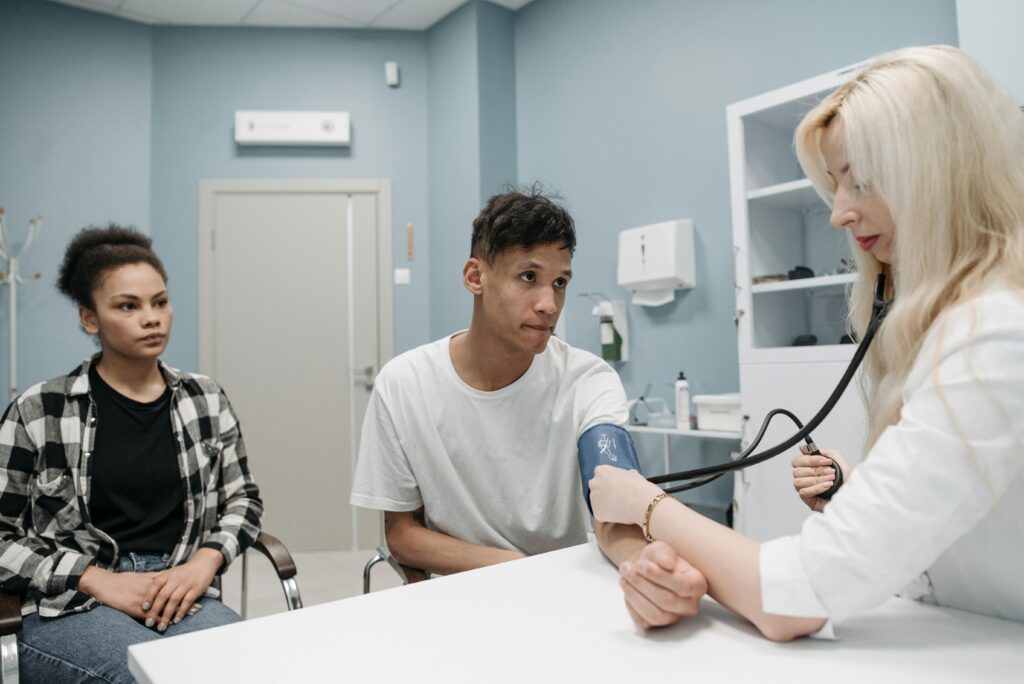Dear friends,
A new chapter in our work is beginning.
The election of a new president—who is building a new COVID-19 task force, with a focus on racial disparities and plans for a new public health corps—is an opportunity for our community of Upstreamists to shape the health equity work to come.
We have a fresh chance now not only to repair the recent damage done to our vital institutions of democracy and health, such as the CDC and NIH, but to directly participate in and advise efforts to shape a new era in health equity. (AMA Chief Health Equity Officer Aletha Maybank and I discussed these possibilities in a recent webinar.)
That’s good news. But what previous elections have taught us is that a new presidential administration is not a panacea, it’s an opportunity.
As much as we want to exhale, we can’t relinquish the important lesson of this election and this past year, which is that democracy and the fight for equity only thrive when people engage in them. Social movements are essential, and the success of our health equity and upstream transformation efforts will depend on how well professionals and institutions support and participate in them.
What does this mean?
First, as the panelists indicated in our last webinar, titled “The Fight Continues,” now is the right moment to renew our commitment and refine our strategies to pursue upstream transformation at all three levels of action:
- Practice-level transformation, with our colleagues and patients
- System-level transformation, within and across our institutions and partnerships
- Societal-level transformation, through policy change and social movements
Second, to support this transformation, we need our institutions—from health systems and health plans to community health centers and professional associations—to define their role in the context of social movements… to identify how to amplify them, help drive them, and become part of them. This is a moment for institutions that have committed to move upstream to ask themselves how they will leverage their privilege and power to support and engage with social movements.
Third, we know too much to shun the “political.” Let’s recognize that in this new era, there are certain self-evident truths for the Upstream Movement: that health is a social and political phenomenon, that there are “political determinants of health,” and that the health of the public and the health of our democracy are interrelated. We need to keep that awareness at the top of our minds going forward, to not shy away from conversations about racism, class, and power as we move upstream.
Finally, as we approach the dark winter of the pandemic, literal and metaphorical, let us also remember to recognize and center our humanity. As we inevitably restrict our lives to slow the spread of COVID-19 and witness the misinformation and strife that’s fueling its spread, let’s acknowledge the grief, frustration, and fatigue that many of us are feeling. Let’s reach out to find comfort and solace in one another. And then let’s redouble our commitment, both to this work and to each other. This is our time to advance health, share power, and build movements. We can’t miss it.
Best,

Rishi Manchanda
Featured Content
Providing Health Equity for Immigrants in a Time of Crisis
This moment presents an opportunity for healthcare leaders to harness the national attention focused on immigrant care to build investments, policies, and protections to improve care for these communities long-term.
HealthBegins Brief: Addressing Climate Health Inequities With The Community Health Needs Assessment
This HealthBegins Policy and Practice Brief invites every healthcare organization to immediately begin addressing the impact of climate change on health at the community level and with community participation.
Immigration Enforcement in Healthcare Settings: How to Prepare and Respond
Many of our healthcare partners are asking how they should prepare for potential ICE encounters on their premises and respond in the interim to concerns among patients and staff. These questions, answers, and resources provide some guidance.



